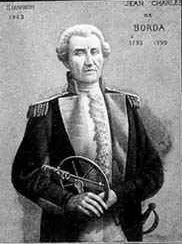
Name: Robin Cook
Birth Year: 1940
Nationality: American
Profession: Physician and author
Notable Works: Known for medical thrillers and novels such as 'Coma' and 'Outbreak'.
1940 – Robin Cook, American physician and author
Early Life and Education
Cook's medical journey began with his undergraduate education at Colgate University, where he earned a Bachelor of Arts degree. He then went on to attend the prestigious Harvard Medical School, where he received his Doctor of Medicine (MD) degree. After completing his residency at the New England Deaconess Hospital, Cook devoted himself to practicing medicine, which provided him with invaluable experiences and insights that would later inform his writing.
Literary Career
Cook's foray into writing began while he was still practicing medicine. His debut novel, Coma, published in 1977, became an instant bestseller and was transformative in setting the stage for a new genre of medical thrillers. The book's gripping plot revolves around a series of mysterious comas affecting patients at a prestigious hospital, exploring themes of medical ethics and corporate greed.
Following the success of Coma, Cook continued to publish a series of bestselling novels, including Outbreak, Checkpoint, and Contagion, each delving into contemporary medical issues with a fast-paced narrative style. His writing not only entertains but also raises awareness about important ethical questions in medicine, biotechnology, and public health.
Impact and Legacy
Over the years, Robin Cook has sold over 100 million copies of his books worldwide, establishing himself as one of the most popular authors in the medical thriller genre. His ability to weave complex medical concepts into thrilling narratives has earned him accolades and a dedicated fan base. Cook's works have often served as vehicles for social commentary, addressing urgent healthcare challenges and the impact of technology on patient care.
In addition to his novels, Cook has also contributed to public discourse through articles and essays, emphasizing the importance of ethical practices in medicine. His expertise as a physician gives him a unique authority to tackle controversial topics and engage readers in a dialogue about the future of healthcare.
Personal Life
Robin Cook is married to novelist and screenwriter Barbara Cook, who has also made her mark in the literary world. The couple often collaborates on various writing projects, enriching their shared passion for storytelling. Cook's commitment to both medicine and literature remains a significant part of his identity, demonstrating how the two fields can intersect to enlighten and engage the public.
Robin Cook: A Life Beyond Medicine
In the heart of the 20th century, amidst the backdrop of war and upheaval, a boy was born in 1940 who would one day redefine the genre of medical thrillers. Robin Cook emerged from a modest upbringing in New York City. Growing up in an environment brimming with intellectual vigor and curiosity, he was drawn to both medicine and storytelling a unique combination that would later fuel his literary career.
Cook's journey into medicine began when he enrolled at Columbia University. There, he not only absorbed the intricacies of human anatomy but also fostered a deeper understanding of the ethical dilemmas that arise within healthcare. Ironically, it was during these formative years as a medical student that he began to feel disillusioned by certain practices within the healthcare system practices he would later expose in his novels.
Following his graduation from medical school, Cook pursued a residency in ophthalmology. This specialization allowed him to hone his surgical skills while also offering him insight into patient care on a personal level. Perhaps it was this intimate connection with patients that later inspired characters who grapple with moral ambiguities in his books individuals often caught between their professional obligations and personal ethics.
However, despite Cook's promising medical career, an undeniable urge to tell stories persisted within him. After completing his training and establishing himself as an ophthalmologist, Cook took a bold step: he decided to intertwine his two passions by writing novels rooted deeply in medical science.
The turning point came when “Coma” was published in 1977 a chilling narrative exploring themes of medical ethics and corporate greed within hospitals. Critics lauded it for its gripping plotline and authenticity; after all, who better than a physician could convey the intricate realities of life behind hospital doors? As readers turned pages late into the night, they were pulled into a world where trust is betrayed by those sworn to heal.
This initial success not only solidified Cook's reputation as an author but also propelled him onto bestseller lists across America and beyond! With each subsequent release such as “Sphinx” or “Outbreak,” readers were introduced to complex narratives interwoven with real-life dilemmas confronting modern medicine issues like organ transplantation and bioterrorism became part of popular discourse largely thanks to Cook’s penmanship.
Despite this remarkable trajectory toward literary acclaim, challenges loomed on the horizon for Cook as well. Critics occasionally dismissed him as merely sensationalist a claim aimed at undermining both his authenticity as an author and credibility rooted deep within years spent practicing medicine.
A Legacy Intertwined with Ethics
Cook’s works transcended mere entertainment; they sparked dialogue about healthcare policy reforms during tumultuous times when trust towards institutions began waning across America. The emergence of managed care the shift from individual patient focus towards profitability led many citizens questioning whether money had eclipsed humanity’s core values within their beloved health systems!
The Dangers Lurking Beneath
- "Outbreak": A gripping exploration into how easily diseases can spread due to negligence not just among populations but also institutions themselves!
- "Contagion": Raising alarms around bioterrorism long before it became common rhetoric post-9/11!
- "Crank": A tale examining addiction intertwined with ethical quandaries surrounding pharmaceutical giants...
The Author Behind The Novels
"I write thrillers because I believe they are reflections of reality," said Robin during an interview back then expressing faith that fiction could indeed shine light on societal issues often swept under rugs."










